Potential Early Warning Signs of Stomach Cancer
Stomach cancer, also known as gastric cancer, affects the stomach, a vital organ in the digestive system. According to the American Cancer Society, it is estimated that over 26,500 new cases will be diagnosed in the United States in 2024. Unfortunately, stomach cancer is often diagnosed in advanced stages due to subtle or absent early symptoms, making early detection challenging. Recognizing potential warning signs can be crucial for improving outcomes and survival rates. Understanding these signs empowers individuals to seek timely medical attention.
1. Persistent Indigestion

Persistent indigestion, also known as dyspepsia, can be an early sign of stomach cancer. While occasional heartburn or acid reflux is common and often related to dietary habits or stress, chronic indigestion that does not resolve with over-the-counter remedies may indicate underlying changes in the stomach lining. Unlike typical reflux, which is usually triggered by specific foods or occurs sporadically, persistent indigestion tends to linger despite lifestyle modifications and persists over several weeks. Symptoms may include upper abdominal discomfort, bloating, or early fullness during meals. If you experience ongoing indigestion that does not improve with standard treatments, it is important to consult a healthcare professional. Chronic dyspepsia, particularly in individuals over 55 or those with additional risk factors, warrants prompt evaluation to rule out serious conditions such as stomach cancer. For further information on the symptoms and when to seek help, visit the Mayo Clinic’s stomach cancer resource. Early medical assessment can help identify potential problems before they advance, improving the chances of successful treatment.
2. Unexplained Weight Loss

Unexplained weight loss is often one of the first noticeable signs of various cancers, including stomach cancer. Cancer cells can alter the body’s metabolism, causing it to burn calories at a faster rate even without changes in physical activity or diet. Additionally, stomach tumors may interfere with digestion and nutrient absorption, making it difficult for the body to get the energy it needs. Unlike weight loss through intentional dieting or exercise, cancer-related weight loss typically occurs rapidly and without effort, leaving individuals puzzled about the cause. This type of weight loss is usually unintentional, can be significant, and may occur alongside loss of appetite or a feeling of fullness after eating small amounts. It is important to pay attention to any unintentional weight reduction, especially if you lose more than 5% of your body weight over six to twelve months without trying. Keeping track of your weight regularly can help you notice subtle changes. If you experience unexpected weight loss, consult your doctor for a thorough evaluation. For more information about cancer-related weight loss, visit the Cancer.Net resource on weight changes.
3. Persistent Nausea

Persistent nausea is another potential early warning sign of stomach cancer. Unlike the short-term nausea associated with viral illnesses or food poisoning—which usually resolves within a few days—nausea linked to stomach cancer tends to be ongoing and may not have a clear cause. Stomach tumors can irritate the stomach lining or partially block the passage of food, leading to chronic queasiness. This persistent discomfort can sometimes be accompanied by vomiting, especially after meals, and often does not improve with typical home remedies or over-the-counter medications. Individuals with stomach cancer may also experience nausea that worsens over time or is aggravated by eating, further distinguishing it from nausea caused by temporary infections.
If you are experiencing nausea that lasts for more than a week, or if it is accompanied by other concerning symptoms such as weight loss, fatigue, or difficulty eating, it is important to seek medical advice. Early evaluation can help identify the underlying cause and rule out serious conditions. For more information about persistent nausea and its causes, refer to the American Cancer Society’s overview of stomach cancer symptoms. Taking such symptoms seriously ensures timely diagnosis and better management.
4. Feeling Full Quickly
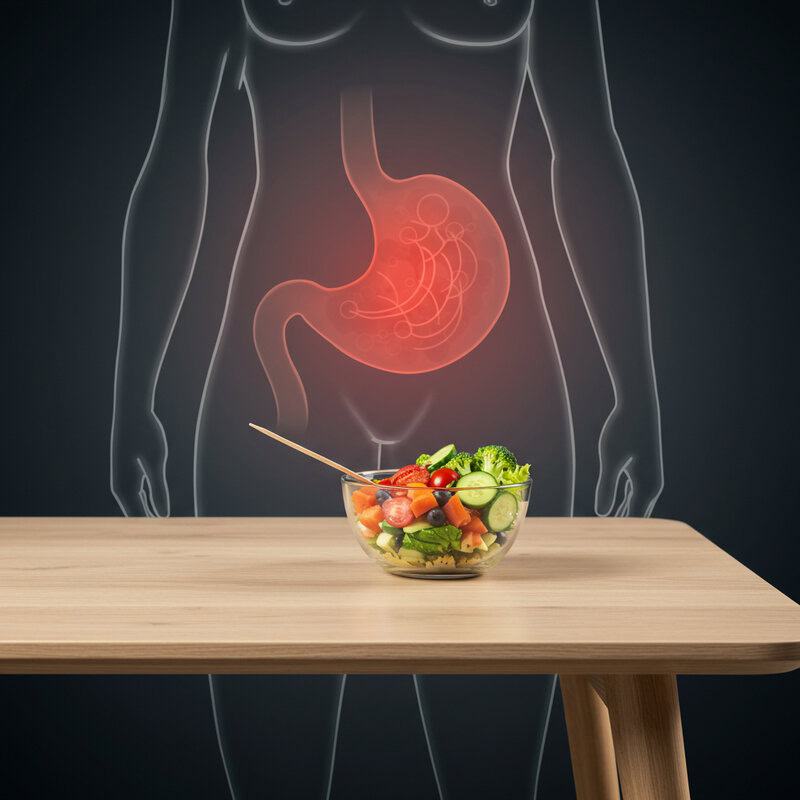
Early satiety, or the sensation of feeling full after consuming only a small amount of food, can be a significant early indicator of stomach cancer. This symptom often develops when tumor growth inside the stomach reduces its capacity, hampers its ability to expand, or affects the normal movement of food through the digestive tract. Unlike the familiar fullness experienced after eating a large meal—when the stomach is physically stretched—early satiety occurs even after eating modest portions, sometimes leading individuals to unintentionally reduce their food intake and, subsequently, lose weight.
This sense of premature fullness is concerning when it becomes persistent or progressively worse, especially in the absence of dietary or lifestyle changes. It may be accompanied by other symptoms such as bloating, nausea, or discomfort during meals. Experiencing early satiety on a regular basis can signal an underlying issue with the stomach’s function, which may warrant medical attention. If you consistently feel full after eating very little, particularly if it is accompanied by other gastrointestinal symptoms, you should consult a healthcare provider promptly. For more information about early satiety and its connection to stomach cancer, visit the Cancer Research UK stomach cancer symptoms page.
5. Stomach Pain or Discomfort
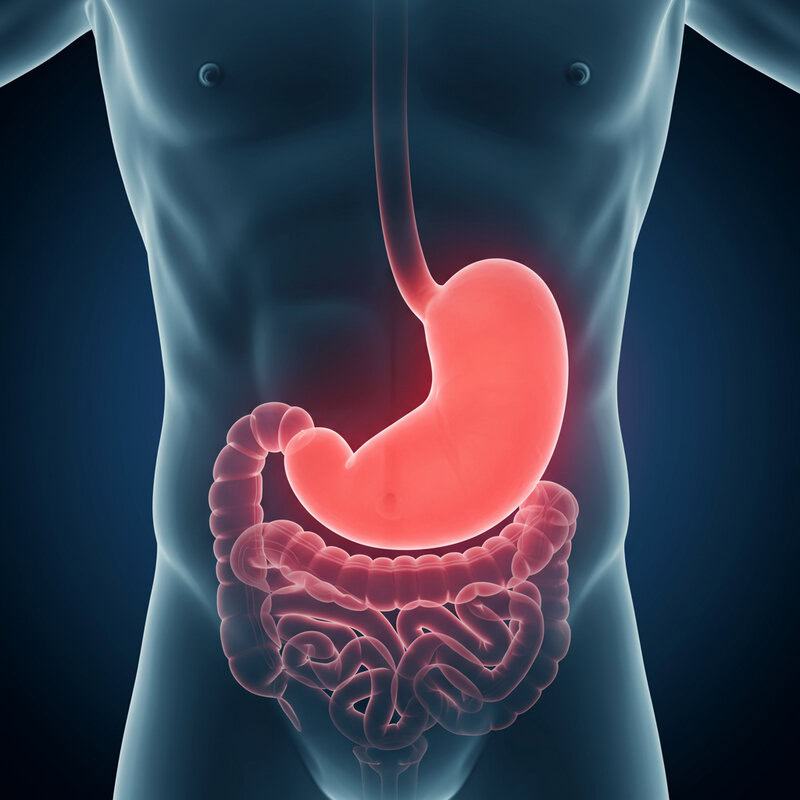
Stomach pain or discomfort that persists over time can be an important early sign of stomach cancer. Tumors in the stomach can irritate or invade the stomach lining and surrounding tissues, leading to dull, aching pain or a continuous sense of discomfort. This pain often develops gradually and may intensify as the cancer grows or if the tumor obstructs normal digestive processes. Unlike the sharp, cramping pain typically associated with food poisoning or a stomach virus—which usually resolves within a few days—pain from a developing tumor tends to be more constant or recurrent, often unrelated to specific foods or activities.
Persistent abdominal discomfort may also be accompanied by a sense of pressure, bloating, or tenderness that does not improve with common remedies. Such ongoing symptoms should not be ignored, especially if they last for several weeks or become more severe. Early medical evaluation is crucial for distinguishing between benign causes and more serious conditions like stomach cancer. For a detailed list of stomach cancer symptoms, including pain and discomfort, refer to the MSD Manuals overview of stomach cancer. Addressing persistent pain early can lead to prompt diagnosis and improved outcomes.
6. Heartburn That Doesn’t Go Away
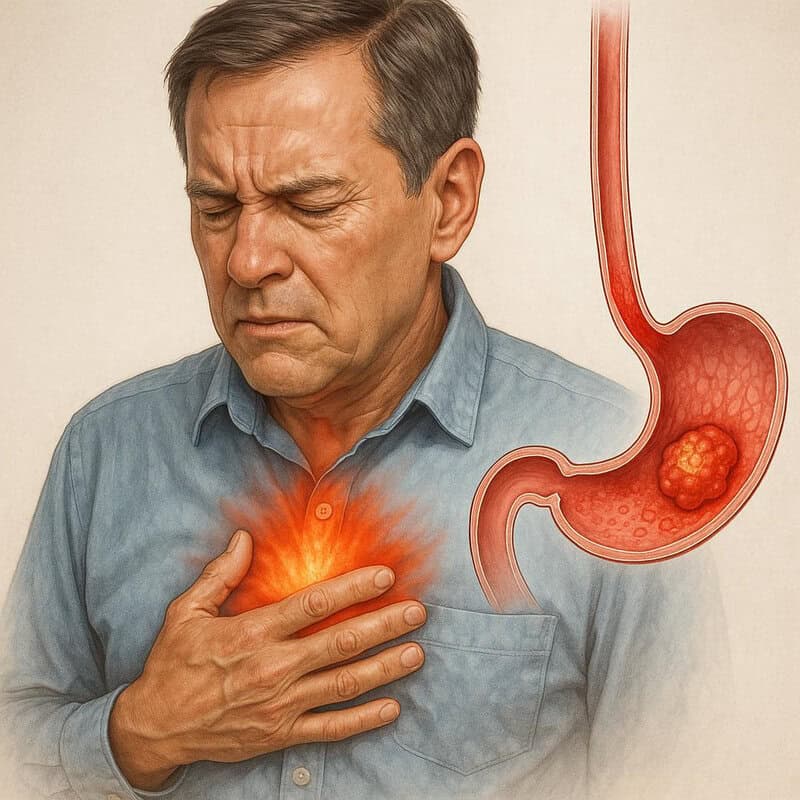
Chronic heartburn, or acid reflux that persists despite lifestyle changes and over-the-counter medications, can be a potential warning sign of stomach cancer. While occasional heartburn is common and often related to dietary choices, stress, or certain medications, persistent symptoms that linger for weeks or months can indicate a more serious problem. Stomach tumors can interfere with the normal functioning of the lower esophageal sphincter or cause inflammation that triggers ongoing acid reflux. This type of chronic heartburn is different from the temporary discomfort after eating spicy or fatty foods, as it often occurs more frequently and may not respond to standard remedies.
The duration and frequency of symptoms are important factors in distinguishing benign reflux from something more concerning. If you find that heartburn occurs most days of the week, lasts for several weeks, or is accompanied by other symptoms such as difficulty swallowing, weight loss, or nausea, it is essential to seek medical evaluation. Ignoring persistent heartburn can delay diagnosis of serious underlying conditions. For more information on the link between chronic heartburn and stomach cancer, consult the NHS guide to stomach cancer symptoms. Prompt investigation helps ensure accurate diagnosis and effective treatment.
7. Loss of Appetite

Loss of appetite is a frequently overlooked but important early symptom of stomach cancer. Cancer can disrupt normal appetite-regulating hormones and cause metabolic changes that reduce a person’s desire to eat. Tumors in the stomach may also physically obstruct food passage or create inflammation, further diminishing hunger signals. This biologically driven appetite loss is different from temporary changes due to stress, emotional upheaval, or minor illnesses, which typically resolve once the underlying issue improves. In contrast, cancer-related loss of appetite often persists, sometimes accompanied by early satiety, weight loss, or a general feeling of malaise.
It’s important to pay attention to prolonged or unexplained changes in appetite, especially if they last more than a couple of weeks or are associated with other digestive symptoms. A consistent decrease in food intake can quickly lead to nutritional deficiencies and unintentional weight loss, both of which may worsen overall health. If you notice a sustained lack of interest in eating, particularly when combined with other symptoms like nausea or abdominal discomfort, consult your healthcare provider for evaluation. For more information about appetite loss and its significance in cancer, visit the National Cancer Institute’s resource on appetite loss.
8. Vomiting (Sometimes With Blood)
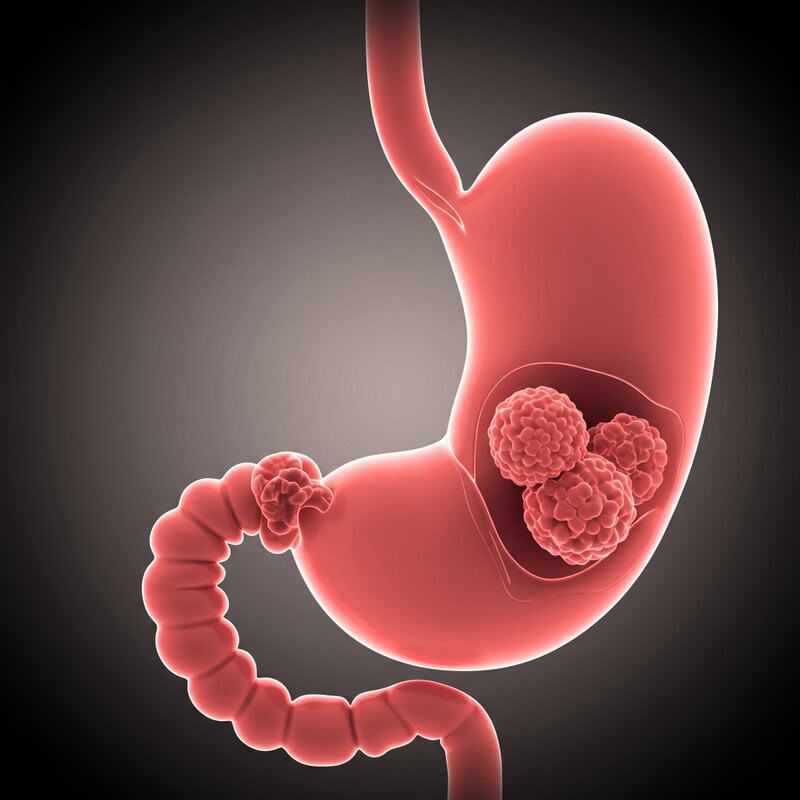
Vomiting is another symptom that can occur with stomach cancer, particularly as the disease progresses or if a tumor blocks the normal movement of food through the digestive tract. Tumors can cause irritation, inflammation, or narrowing of the stomach, making it harder for food to pass and triggering the reflex to vomit. While occasional vomiting can be related to mild illnesses or food intolerance, persistent or recurrent vomiting is more concerning and warrants medical investigation. Of particular urgency is the presence of blood in vomit, which may appear as bright red streaks or resemble coffee grounds (partially digested blood). This can indicate bleeding from the tumor or other serious complications within the stomach.
Vomiting blood is always a medical emergency and should be addressed immediately, as it can lead to significant blood loss and may signal an advanced or aggressive tumor. If you or someone you know experiences persistent vomiting—especially with any signs of blood—seek urgent medical attention. For detailed information on vomiting as a symptom and what to do if blood is present, consult the American Cancer Society’s guide on stomach cancer symptoms. Prompt evaluation is critical for both diagnosis and effective treatment.
9. Blood in Stool or Black Stools
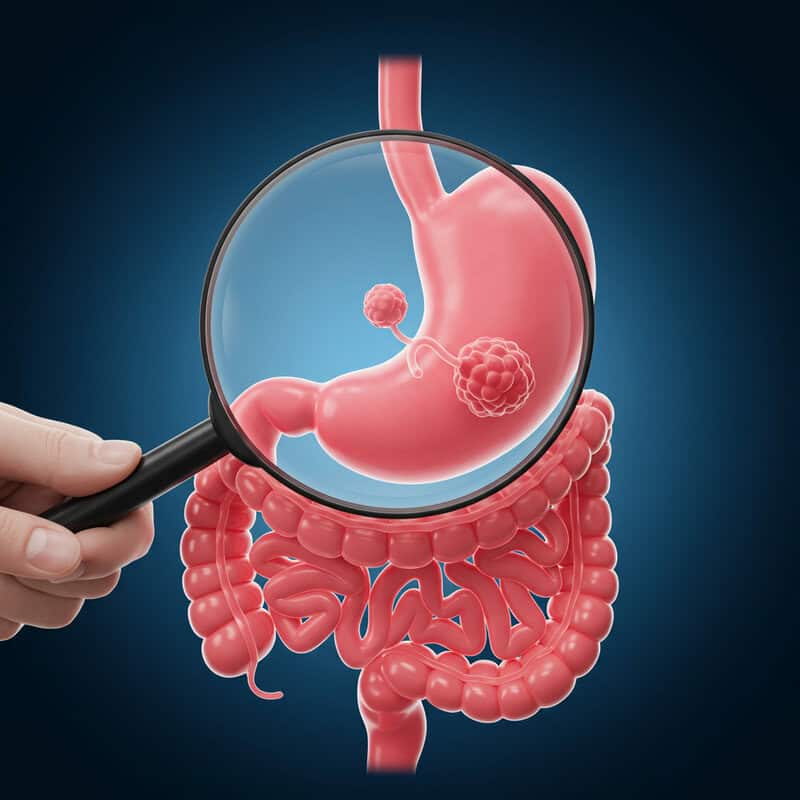
The presence of blood in the stool or the appearance of black, tarry stools (known as melena) can be a sign of bleeding within the stomach, often caused by a tumor. As a tumor grows, it may erode blood vessels in the stomach lining, leading to slow, persistent bleeding. When blood passes through the digestive tract, it is broken down by stomach acids and enzymes, causing stools to turn dark and sticky. This is different from the temporary color changes that can result from eating certain foods, such as beets, licorice, or iron supplements, which may also darken stools but do not give them a tar-like consistency.
It is vital to distinguish between harmless causes of stool color changes and those indicating internal bleeding. Persistent black or bloody stools, especially when accompanied by other symptoms like fatigue, weakness, or unexplained weight loss, require immediate medical evaluation. Such changes may point to significant blood loss or underlying conditions like stomach cancer. For more comprehensive information on gastrointestinal bleeding and its symptoms, refer to the American Cancer Society’s overview of stomach cancer symptoms. Timely assessment is essential for prompt diagnosis and appropriate care.
10. Fatigue and Weakness

Fatigue and weakness are common symptoms in many illnesses, but in the context of stomach cancer, they can be more pronounced and persistent. Chronic blood loss from a bleeding stomach tumor may lead to anemia, a condition in which the body lacks enough healthy red blood cells to carry adequate oxygen to tissues. This can result in ongoing fatigue, weakness, dizziness, or shortness of breath. Additionally, cancer itself can alter the body’s metabolism, increasing energy consumption and further contributing to a feeling of exhaustion. Unlike normal tiredness that resolves after rest or a good night’s sleep, cancer-related fatigue tends to be constant, severe, and unrelieved by rest.
It is important to pay attention to fatigue that is unexplained, ongoing, or interferes with daily activities. If you notice a significant drop in your energy levels, particularly if it is accompanied by other symptoms such as weight loss, pale skin, or black stools, you should seek medical advice. Persistent weakness may be a sign of internal bleeding or advanced disease. For more details about fatigue as a cancer symptom and when to seek help, visit the Cancer.Net resource on fatigue. Early evaluation can help identify the underlying cause and guide treatment.
11. Swelling or Fluid in the Abdomen

Swelling or a noticeable increase in abdominal size can be an early sign of stomach cancer, often resulting from a buildup of fluid known as ascites. Cancer cells can irritate the lining of the abdomen or block lymphatic drainage, leading to leakage of fluid into the abdominal cavity. Unlike the temporary bloating or mild swelling that occurs after overeating or consuming gas-producing foods, ascites typically causes persistent, progressive distension that does not subside with dietary changes or over time. The abdomen may feel tight, uncomfortable, or heavy, and the swelling can be accompanied by shortness of breath or difficulty moving.
Persistent or rapidly increasing abdominal swelling should be taken seriously, especially if it is associated with other symptoms such as unexplained weight loss, loss of appetite, or fatigue. While mild bloating is common and usually harmless, ascites can indicate a serious underlying condition such as cancer or liver disease. If you notice ongoing or worsening abdominal swelling, consult a healthcare provider for a thorough evaluation. For more information about cancer-related ascites and its symptoms, visit the American Cancer Society’s guide to ascites. Early recognition and management of ascites are crucial for comfort and effective care.
12. Difficulty Swallowing
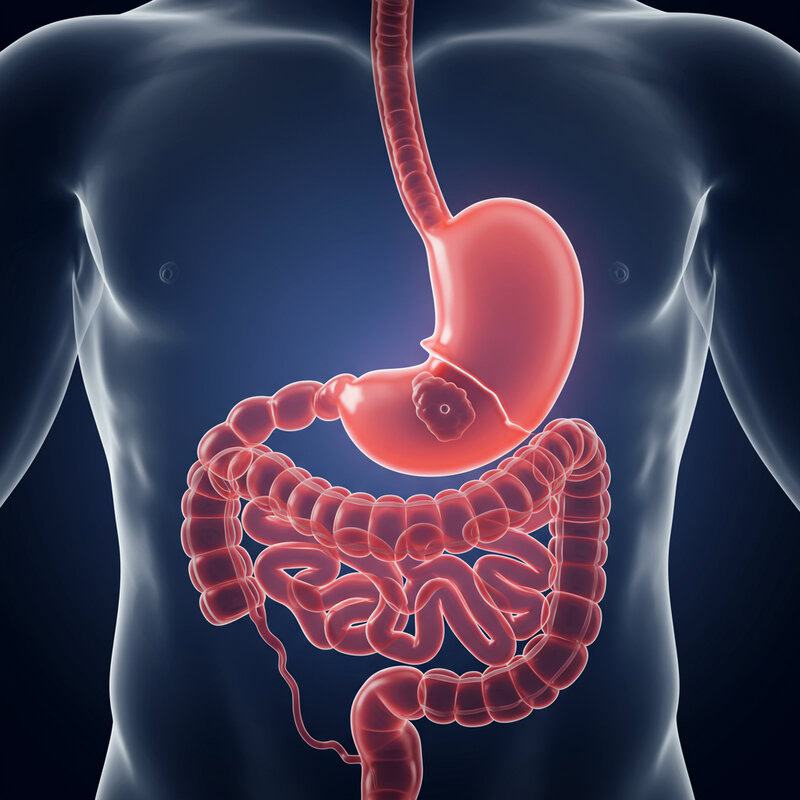
Difficulty swallowing, known medically as dysphagia, can occur when a tumor develops near the entrance of the stomach (the gastroesophageal junction). As the tumor grows, it may partially block or narrow this passage, making it increasingly hard for food or liquids to move from the esophagus into the stomach. Unlike swallowing difficulties caused by a sore throat or temporary inflammation—where pain or discomfort is usually present and improves within a few days—cancer-related dysphagia typically worsens over time and is not associated with infection or pain when at rest.
People may initially notice a sensation of food “sticking” or slowing down when swallowing solid foods, and later, even liquids may become difficult to swallow. This can lead to reduced food intake, weight loss, and dehydration. If you experience persistent or progressive trouble swallowing, especially in the absence of other common causes such as a cold or allergies, it is important to seek medical evaluation. Early diagnosis can help identify the cause and allow for timely intervention. For additional details on swallowing difficulties and their link to stomach cancer, visit the American Cancer Society’s stomach cancer symptoms page. Prompt attention can improve outcomes and quality of life.
13. Frequent Belching
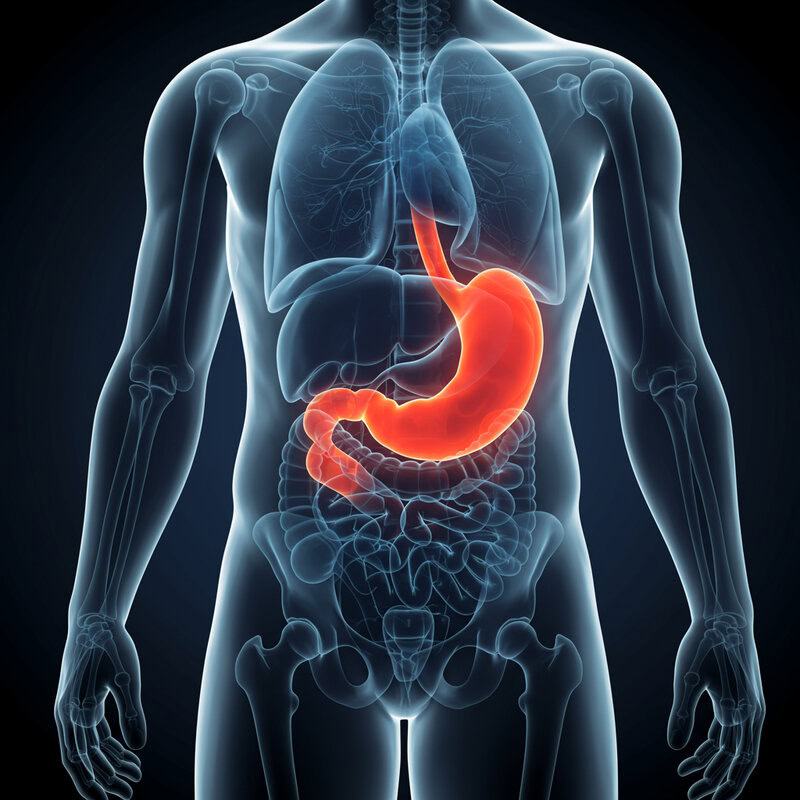
Frequent belching can be an overlooked yet significant symptom that may signal underlying stomach issues, including cancer. In the context of stomach cancer, tumors can disrupt normal digestion, slow gastric emptying, and increase gas production within the stomach. This leads to a greater accumulation of air and gas, which the body expels through belching. Unlike the occasional belching that results from consuming carbonated beverages, eating too quickly, or swallowing air—situations that typically resolve quickly—persistent or excessive belching may indicate an underlying medical concern.
When belching is frequent and not clearly linked to dietary habits, it may accompany other symptoms such as abdominal discomfort, a feeling of fullness, or unexplained weight loss. This pattern is different from transient belching, which is temporary and predictable. If belching occurs regularly over several weeks, or if it is associated with other digestive changes, it is important to monitor these symptoms closely and consult a healthcare provider. Persistent belching can sometimes be an early sign of disturbances in the stomach’s function, including malignancy. For more information about digestive symptoms and their causes, visit the Cancer Research UK’s stomach cancer symptoms page. Early evaluation helps ensure timely diagnosis and care.
14. Bloating After Eating

Bloating after eating can sometimes be more than just the result of consuming gas-producing foods; it may be an early sign of underlying stomach problems, including cancer. Tumors in the stomach can interfere with the normal emptying of food by blocking or slowing the natural movement of contents through the digestive tract. This can cause a sensation of pressure, tightness, or fullness that lingers well after a meal. Unlike the predictable bloating that follows the consumption of beans, lentils, or carbonated drinks—which usually resolves within a few hours—cancer-related bloating tends to be persistent, even when dietary triggers are avoided.
Chronic post-meal bloating that occurs with small meals or without known dietary causes should not be ignored, especially if it is accompanied by other symptoms such as early satiety, weight loss, or abdominal discomfort. Monitoring the frequency and severity of bloating can help identify patterns that warrant medical attention. If you experience persistent or unexplained bloating after eating, it is important to consult a healthcare professional for evaluation. For more information on bloating and its possible links to stomach cancer, see the American Cancer Society’s guide to stomach cancer symptoms. Early recognition can lead to timely diagnosis and treatment.
15. Anemia (Low Red Blood Cells)

Anemia, defined as a low level of red blood cells, is a common complication of chronic bleeding from stomach tumors. As these tumors erode the stomach lining, they can cause slow but persistent blood loss that may go unnoticed for months. Over time, this hidden bleeding depletes the body’s iron reserves, resulting in iron-deficiency anemia. Unlike anemia caused by a poor diet—which typically develops gradually due to insufficient intake of iron-rich foods—cancer-related anemia is often more severe and may not improve with dietary changes alone. Symptoms may include persistent fatigue, pale skin, shortness of breath, and heart palpitations.
Individuals who are at higher risk for stomach cancer, such as those with a family history or certain genetic conditions, should consider regular blood tests to monitor for anemia. Routine bloodwork can help detect changes in red blood cell levels early, even before other symptoms develop. If you experience unexplained symptoms of anemia or notice signs of blood loss, such as black stools, it is important to seek medical advice promptly. For more details about anemia in the context of cancer, visit the American Cancer Society’s resource on anemia. Early identification can improve treatment outcomes and quality of life.
16. Pale Skin

Pale skin, or pallor, can be a visible sign of underlying anemia, which often results from chronic blood loss associated with stomach cancer. When the body loses blood slowly over time, as can happen with a bleeding stomach tumor, there are fewer red blood cells to transport oxygen throughout the body. This reduced oxygenation leads to a paler appearance of the skin and mucous membranes, such as the inside of the mouth or the lining of the eyelids. This type of pallor is distinctly different from normal variations in skin tone caused by factors such as sun exposure, seasonal changes, or temporary stress, which typically resolve without intervention.
If pallor persists despite maintaining a consistent lifestyle and is accompanied by other symptoms like fatigue, weakness, or shortness of breath, it should not be ignored. Noticing a change in your complexion, especially if it is a new or unexplained development, warrants medical evaluation to determine the cause. Persistent paleness can be an early indicator of significant anemia and should prompt a healthcare provider to investigate for potential sources of blood loss, including stomach cancer. For more information about the connection between pallor and anemia, visit the American Cancer Society’s anemia resource page. Early recognition is crucial for timely diagnosis and treatment.
17. Swollen Lymph Nodes

Swollen lymph nodes can be a sign that stomach cancer has spread beyond the stomach itself. Lymph nodes are small, bean-shaped structures that play a crucial role in the body’s immune system by filtering harmful substances and helping fight infection. When cancer cells break away from a stomach tumor, they can travel through the lymphatic system and become trapped in nearby lymph nodes, causing them to enlarge. This swelling is usually painless and can occur in areas such as the neck, collarbone, or armpits when related to stomach cancer.
It is important to distinguish between lymph node swelling caused by cancer and that caused by common infections. Swollen nodes from infections are often tender, soft, and may be accompanied by symptoms like fever or sore throat. In contrast, cancer-related swollen lymph nodes are typically firm, non-tender, and persistent, not resolving within a couple of weeks. If you notice swollen lymph nodes that do not decrease in size, continue to grow, or are accompanied by other symptoms such as unexplained weight loss or fatigue, it is important to seek medical evaluation. For more information on lymph node involvement in stomach cancer, visit the American Cancer Society’s guide to stomach cancer staging. Early assessment is essential for effective management.
18. Jaundice (Yellowing of Skin/Eyes)

Jaundice, characterized by a yellowing of the skin and the whites of the eyes, can occur when advanced stomach cancer spreads to the liver or blocks the bile ducts. Cancerous tumors may impair the liver’s ability to process and excrete bilirubin, a yellow pigment produced by the breakdown of red blood cells. As bilirubin accumulates in the blood, the skin and eyes take on a distinct yellow hue. This is different from jaundice caused by hepatitis or other liver diseases, which typically results from viral infections or autoimmune conditions rather than tumor growth and metastasis.
Jaundice is a serious symptom that requires prompt medical evaluation, as it often signifies that the cancer has reached an advanced stage or is affecting critical organs. In addition to yellowing of the skin and eyes, other signs may include dark urine, pale stools, and itching. If you or someone you know develops jaundice, especially when accompanied by other warning signs such as weight loss, abdominal pain, or swelling, seek immediate medical attention. For more information about jaundice and its connection to cancer, visit the American Cancer Society’s stomach cancer symptoms page. Early intervention is crucial for effective management and care.
19. Unexplained Fever

Unexplained fever can sometimes be an indicator of underlying cancer, including stomach cancer. As the body’s immune system responds to the presence of malignant cells, it may trigger a low-grade, persistent fever. This is the result of the body’s attempt to fight abnormal cell growth and inflammation caused by tumors. Unlike fevers from common infections—such as the flu or a cold—which are typically higher in temperature, come on suddenly, and resolve within a few days, cancer-related fevers are often mild, chronic, and do not respond to typical fever-reducing medications. They may also be accompanied by night sweats or chills.
If you experience a fever that lasts for more than a week without an obvious cause, such as infection or recent vaccination, it is important to seek medical evaluation. Persistent fevers, especially when paired with other symptoms like unexplained weight loss, night sweats, or fatigue, should not be ignored. Such symptoms can indicate that the body is mounting a continuous immune response to an underlying issue, including cancer. For more information about unexplained fevers and cancer, visit the American Cancer Society’s guide to fever and cancer. Early assessment is essential for proper diagnosis and intervention.
20. Frequent Hiccups
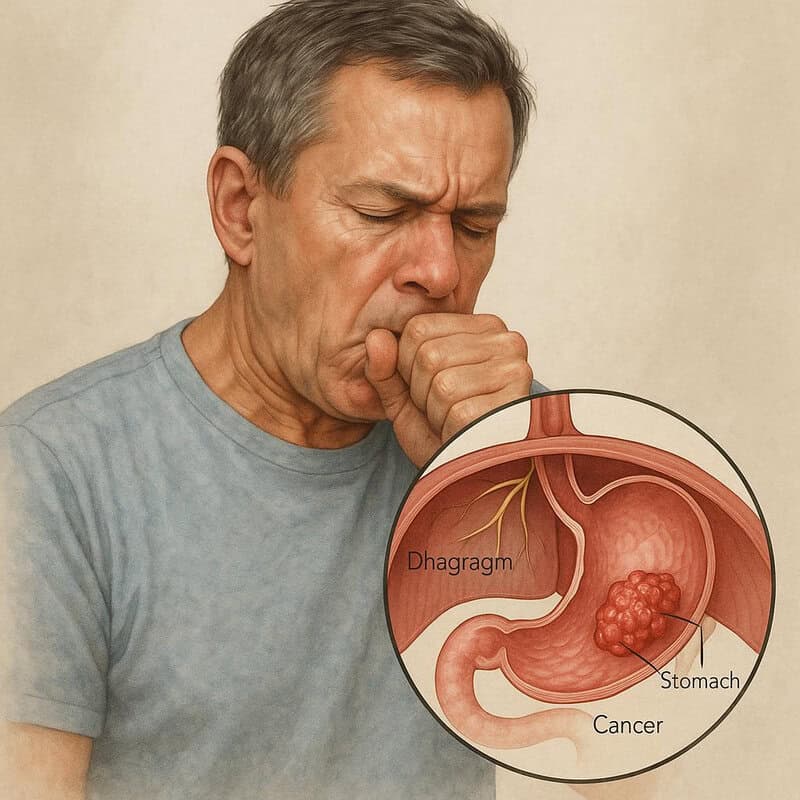
Frequent hiccups, while often considered harmless and temporary, can occasionally be a sign of underlying medical conditions, including stomach cancer. Tumors located near the upper stomach or the diaphragm can irritate the phrenic or vagus nerves, which control the diaphragm’s movement. This irritation may lead to persistent or recurrent hiccups that are difficult to stop. Unlike the common hiccups that occur after eating too quickly, drinking carbonated beverages, or sudden excitement—typically resolving within minutes—cancer-related hiccups tend to linger and may occur without a clear trigger.
While short-lived hiccups are almost always benign, ongoing or unusually frequent hiccups that last for more than 48 hours should be taken seriously, especially if accompanied by other symptoms such as difficulty swallowing, abdominal discomfort, or unexplained weight loss. Persistent hiccups can interfere with eating, sleeping, and overall quality of life, signaling the need for a thorough medical evaluation. If you experience chronic hiccups without a clear cause, consult a healthcare provider to rule out serious underlying conditions. For more information about persistent hiccups and their association with cancer, visit the American Cancer Society’s page on hiccups and cancer. Timely attention is essential for proper care.
21. Unusual Taste in Mouth
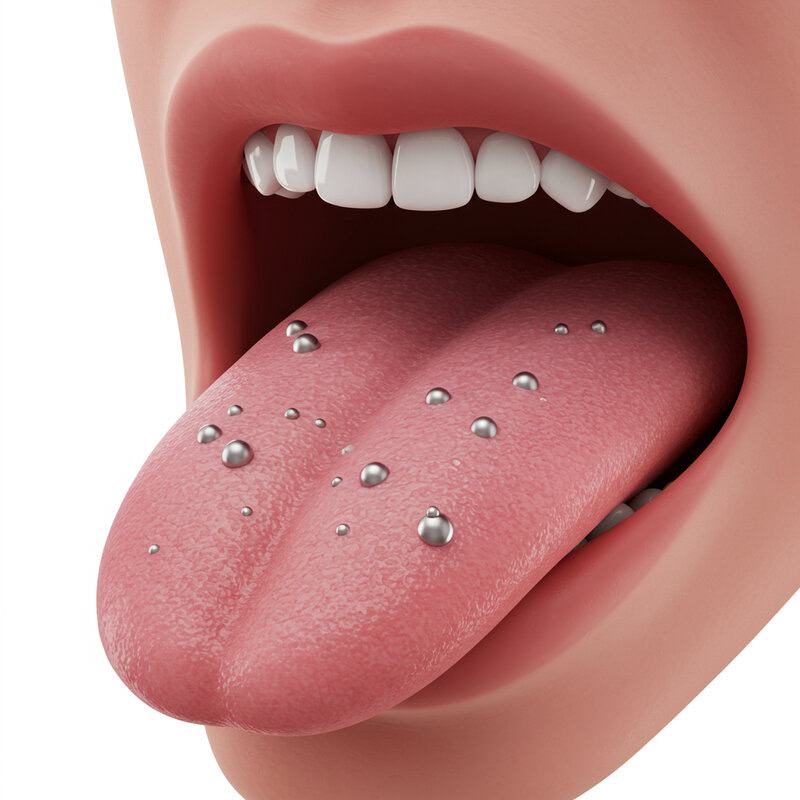
An unusual or metallic taste in the mouth, known as dysgeusia, can sometimes be experienced by individuals with stomach cancer. This alteration in taste may occur due to the cancer itself, which can release substances affecting the taste buds, or as a result of inflammation and metabolic changes in the body. Additionally, treatments for cancer, such as chemotherapy or radiation, are well known to disrupt normal taste sensations. In contrast to temporary taste changes caused by eating certain foods, medications, or minor illnesses—such as a lingering taste after consuming garlic or antibiotics—cancer-related taste disturbances are persistent and not linked to recent dietary choices.
If you notice a persistent change in your sense of taste that lasts for several weeks and is not associated with a clear cause, it is important to monitor for accompanying symptoms such as loss of appetite, weight loss, or oral discomfort. Ongoing taste changes can affect nutrition and quality of life, making prompt evaluation important. If unusual tastes persist, especially alongside other concerning signs, seek medical advice for appropriate investigation. For further details, visit the Cancer.Net resource on changes in taste. Early recognition can aid in identifying underlying health issues and guiding management.
22. Bad Breath (Halitosis)

Bad breath, or halitosis, can sometimes be an overlooked sign of underlying digestive issues, including stomach cancer. When tumors disrupt normal stomach function, food may linger longer in the stomach, leading to fermentation and the growth of bacteria that produce foul-smelling compounds. In some cases, persistent vomiting or regurgitation associated with cancer can also contribute to unpleasant breath odor. This type of halitosis is different from the temporary bad breath caused by consuming pungent foods like garlic or onions, which typically dissipates after brushing teeth or waiting a few hours.
Persistent bad breath that does not improve with normal oral hygiene practices, such as regular brushing, flossing, and mouthwash, should be taken seriously—especially if accompanied by other symptoms like nausea, unexplained weight loss, or changes in appetite. Chronic halitosis may indicate ongoing digestive distress or infection and warrants a thorough evaluation. If you notice ongoing bad breath without an obvious cause or if it is resistant to standard oral care, consult a healthcare provider to rule out gastrointestinal or systemic issues. For more information about bad breath and its links to digestive health, visit the Cancer.Net page on oral health and cancer. Timely assessment can help address both symptoms and underlying causes.
23. Persistent Cough
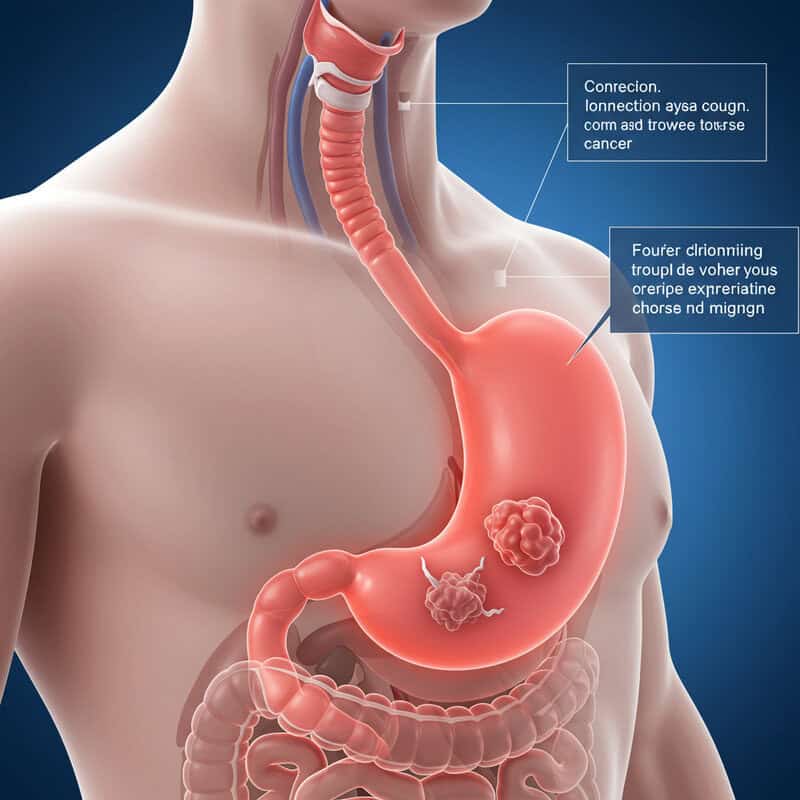
A persistent cough can sometimes be linked to stomach cancer, especially when the disease affects areas near the gastroesophageal junction or causes acid reflux. Tumors can exert pressure on the lower esophagus, leading to reflux of stomach contents into the throat, which may irritate the airway and trigger chronic coughing. Unlike the acute cough associated with common colds or respiratory infections—which typically resolves within a couple of weeks and is often accompanied by other symptoms such as congestion or fever—a cough related to stomach cancer tends to linger and may not respond to standard cold remedies.
This type of cough may be dry or occasionally productive, and can worsen after eating or when lying down. If you experience a cough that lasts longer than three weeks, especially if accompanied by symptoms like heartburn, difficulty swallowing, or unexplained weight loss, it is important to seek evaluation. Persistent or unexplained coughing warrants attention, as it may indicate underlying gastrointestinal or respiratory issues. For more information on the link between cough and digestive disorders, visit the Cancer Research UK’s stomach cancer symptoms page. Early consultation with a healthcare provider can help ensure appropriate diagnosis and timely treatment.
24. Hoarseness or Voice Changes

Hoarseness or noticeable changes in the voice can be an indirect symptom of stomach cancer, particularly when the disease leads to chronic acid reflux or, in rare cases, spreads to nearby tissues. Acid reflux, which is more likely when a tumor affects the gastroesophageal junction, can cause stomach acid to reach the throat and voice box (larynx), irritating the vocal cords and resulting in a raspy, weak, or altered voice. In advanced cases, cancer may spread to lymph nodes or other structures near the throat, directly impacting vocal function. This is distinctly different from temporary hoarseness caused by shouting, singing, or a mild cold, which usually resolves within a few days as the vocal cords recover.
If you experience persistent hoarseness or voice changes lasting more than two weeks, especially in the absence of recent vocal strain or infection, it is important to seek medical advice. Pay attention to additional symptoms such as difficulty swallowing, chronic cough, or unexplained throat discomfort, which may suggest an underlying gastrointestinal or systemic issue. For more information about voice changes and their links to digestive health, visit the American Cancer Society’s stomach cancer symptoms page. Early evaluation can help clarify the cause and guide appropriate care.
25. Unexplained Night Sweats

Unexplained night sweats can be a subtle but important symptom in people with underlying malignancies, including stomach cancer. The body’s immune response to cancer and the metabolic activity of tumors can disrupt normal hormone regulation, leading to excessive sweating during sleep. Unlike perspiration caused by hot weather, heavy blankets, or vigorous exercise, cancer-related night sweats typically occur regardless of the ambient temperature or bedding used. These episodes often drench clothing and sheets and are not linked to external factors.
Occasional night sweating is common and usually harmless, but persistent, unexplained night sweats—especially when accompanied by other symptoms such as weight loss, fever, or fatigue—should raise concern. The underlying mechanisms may include the release of inflammatory cytokines, fever associated with cancer, or the body’s attempt to fight off disease. If you find yourself waking up repeatedly with soaked bedclothes and no clear cause, it is important to consult a healthcare provider for further assessment. Such symptoms can be an early warning of a serious health issue that warrants investigation. For more information, visit the American Cancer Society’s guide to night sweats and cancer. Timely evaluation can help identify and address the root cause.
26. Skin Changes or Rashes
Although rare, certain skin changes or rashes can sometimes signal an underlying malignancy such as stomach cancer. These changes, known as paraneoplastic syndromes, occur when the body’s immune system reacts to cancer or when the tumor produces substances that affect the skin. Examples include acanthosis nigricans (dark, velvety patches in body folds), dermatomyositis (a reddish or purple rash on the face and hands), or sudden, unexplained outbreaks of itching or hives. These paraneoplastic skin manifestations are typically persistent and do not respond to standard treatments for common skin conditions.
In contrast, most everyday rashes are caused by allergies, irritants, infections, or minor skin disorders and tend to resolve with over-the-counter remedies or a change in environment. Skin changes linked to cancer are often more widespread, unusual in appearance, and resistant to typical treatments. If you notice persistent, progressive, or unusual skin discoloration, thickening, or rashes—especially if they occur alongside other warning signs such as unexplained weight loss, fatigue, or digestive symptoms—it is important to seek a medical evaluation. For more information on skin changes associated with cancer, see the American Cancer Society’s page on skin problems and cancer. Early recognition can assist with diagnosis and treatment.
27. Muscle Wasting (Cachexia)

Muscle wasting, clinically referred to as cachexia, is a significant and sometimes early manifestation of stomach cancer. Cancer alters the body’s metabolism, causing increased breakdown of muscle and fat even when caloric intake is relatively unchanged. Tumors release chemicals that disrupt normal metabolic processes, leading to a rapid and involuntary loss of muscle mass and strength. This is different from muscle loss due to inactivity or aging, which typically occurs gradually and may be reversed with exercise and improved nutrition.
Cachexia is often accompanied by fatigue, weakness, and difficulty performing everyday activities. Sudden or rapid muscle loss—especially in the presence of normal or only slightly reduced food intake—should be considered suspicious. Monitoring for changes in muscle tone, grip strength, or unexplained thinning of the limbs can help identify the onset of cachexia. If you experience noticeable loss of muscle mass or strength without a clear cause, it is important to consult your healthcare provider promptly. Early intervention can help address nutritional needs and improve quality of life. For more information on cancer cachexia, visit the American Cancer Society’s resource on appetite loss and cachexia. Recognizing and managing cachexia is crucial for comprehensive cancer care.
28. Frequent Infections

Frequent infections can be a warning sign of underlying cancer, including stomach cancer, due to the immune system’s compromised ability to fight off pathogens. Cancer and its associated metabolic changes can weaken immune defenses by disrupting the production and function of white blood cells. This immune suppression makes the body more susceptible to infections that would normally be easily overcome. In contrast, most people experience occasional infections, such as colds or the flu, typically during certain seasons or after exposure to others who are sick. These routine illnesses generally resolve with rest and standard treatments.
However, repeated or unusually severe infections—such as persistent respiratory, urinary, or skin infections—should prompt concern, especially if they occur alongside other symptoms like fatigue, unexplained weight loss, or chronic digestive issues. Persistent illness may also point to anemia or malnutrition caused by the cancer itself. If you find yourself experiencing recurrent infections without an obvious cause, it is important to seek medical evaluation to determine the underlying reason. For additional information about how cancer affects the immune system and warning signs of frequent infections, visit the American Cancer Society’s guide on infections and cancer. Timely diagnosis and intervention can help prevent complications and improve outcomes.
29. Dark Urine

Dark urine can be a concerning symptom when associated with stomach cancer, as it may indicate internal bleeding or liver involvement. If a tumor causes bleeding in the digestive tract, some of the blood’s breakdown products can be absorbed and later excreted in the urine, resulting in a darker color. Additionally, if stomach cancer spreads to the liver or blocks the bile ducts, it can cause an accumulation of bilirubin, a yellow pigment, which is then filtered out by the kidneys and darkens the urine further. This is different from dark urine caused by dehydration—where urine usually returns to a lighter color after adequate fluid intake—or the consumption of certain foods or medications that temporarily alter urine color.
Persistent dark urine that doesn’t improve with increased hydration, especially if accompanied by other symptoms such as jaundice (yellowing of the skin or eyes), pale stools, unexplained fatigue, or abdominal pain, should prompt immediate medical evaluation. Such symptoms may point to serious complications, including liver dysfunction or significant bleeding, both of which require prompt attention. For more details on symptoms of digestive and liver involvement in cancer, visit the American Cancer Society’s stomach cancer symptoms page. Early assessment can help identify the cause and guide appropriate treatment.
30. Unusual Bruising

Unusual bruising can be an important but sometimes overlooked symptom of underlying health issues, including stomach cancer. As cancer progresses, it can sometimes cause bleeding disorders by affecting the body’s ability to produce enough platelets or by interfering with the liver’s function, which is essential for normal blood clotting. This can result in easy or spontaneous bruising, even with minimal or no apparent trauma. Unlike the common bruises that appear after a bump or injury—typically with a known cause and predictable pattern—bruises related to bleeding disorders are often larger, more frequent, and appear in unusual locations such as the trunk, arms, or legs without an obvious reason.
Persistent or unexplained bruising should not be ignored, especially if it is accompanied by other signs of bleeding, such as nosebleeds, gum bleeding, or the presence of blood in the stool or urine. Such symptoms may indicate a serious underlying problem, including a bleeding disorder or liver dysfunction associated with cancer. If you notice frequent or unexplained bruising, it is important to seek medical advice for appropriate evaluation and diagnosis. For more information about bleeding and bruising in cancer, visit the American Cancer Society’s resource on bleeding and bruising. Early detection can improve management and outcomes.
31. Unexplained Dizziness
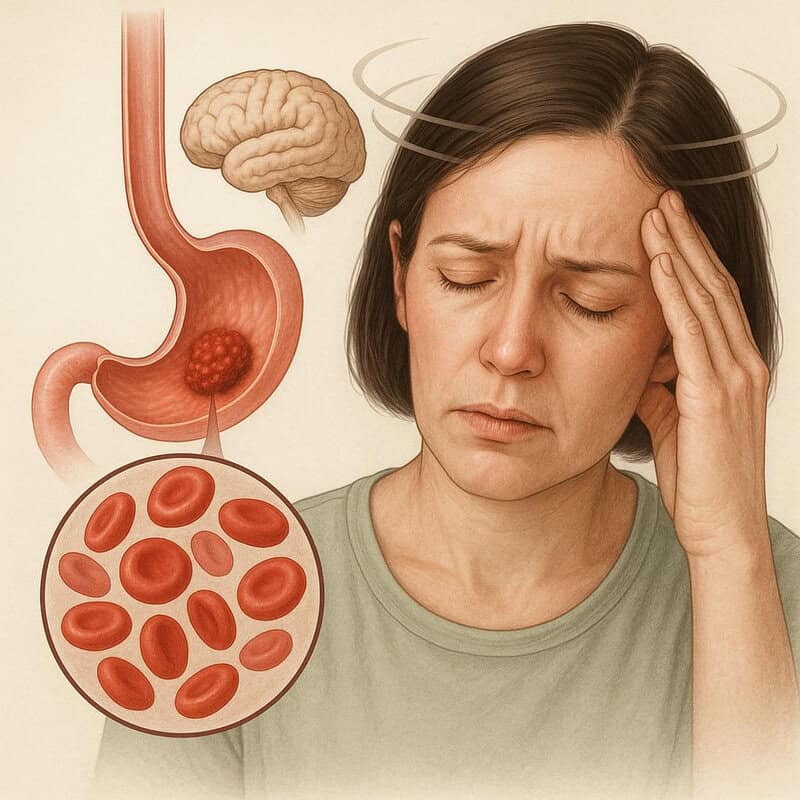
Unexplained dizziness can be a subtle yet significant symptom of stomach cancer, often linked to underlying anemia or chronic blood loss. When a tumor in the stomach causes slow, persistent bleeding, the body’s red blood cell count gradually drops, reducing the amount of oxygen delivered to the brain and other organs. This can lead to sensations of lightheadedness, weakness, or even fainting. Unlike the brief dizziness that occurs with dehydration, sudden standing, or skipping meals—which typically resolves quickly after fluid intake or rest—cancer-related dizziness tends to be more persistent and may be accompanied by additional symptoms such as fatigue, paleness, or shortness of breath.
If you experience ongoing or worsening dizziness without a clear cause, especially in combination with symptoms suggestive of anemia or internal bleeding, it is important to seek evaluation from a healthcare provider. Monitoring your symptoms and noting their frequency and duration can help guide diagnosis and management. For more information about dizziness, anemia, and cancer-related blood loss, visit the American Cancer Society’s anemia resource page. Early recognition and intervention are critical for identifying serious underlying causes and ensuring appropriate treatment.
32. Shortness of Breath

Shortness of breath, or dyspnea, is a symptom that can develop in people with stomach cancer, primarily due to anemia caused by chronic blood loss from the tumor. As the number of red blood cells diminishes, the body’s ability to transport oxygen to tissues and organs is compromised, leading to a sensation of breathlessness even during everyday activities. This experience is markedly different from the temporary shortness of breath felt after vigorous exercise or physical exertion, which quickly resolves with rest and is expected in healthy individuals.
When shortness of breath is persistent, occurs with minimal activity, or appears suddenly without exertion, it warrants prompt medical evaluation. This symptom may be accompanied by other indicators of anemia, such as fatigue, pale skin, or rapid heartbeat. Individuals experiencing ongoing breathlessness—especially if it is new, worsening, or associated with signs of blood loss—should not delay seeking medical advice. Early detection of anemia and its underlying cause is crucial for effective management and improved outcomes. For further information on anemia and cancer-related breathlessness, visit the American Cancer Society’s page on anemia. Timely assessment can help restore oxygen levels and guide appropriate treatment.
33. Shoulder Pain (Referred Pain)
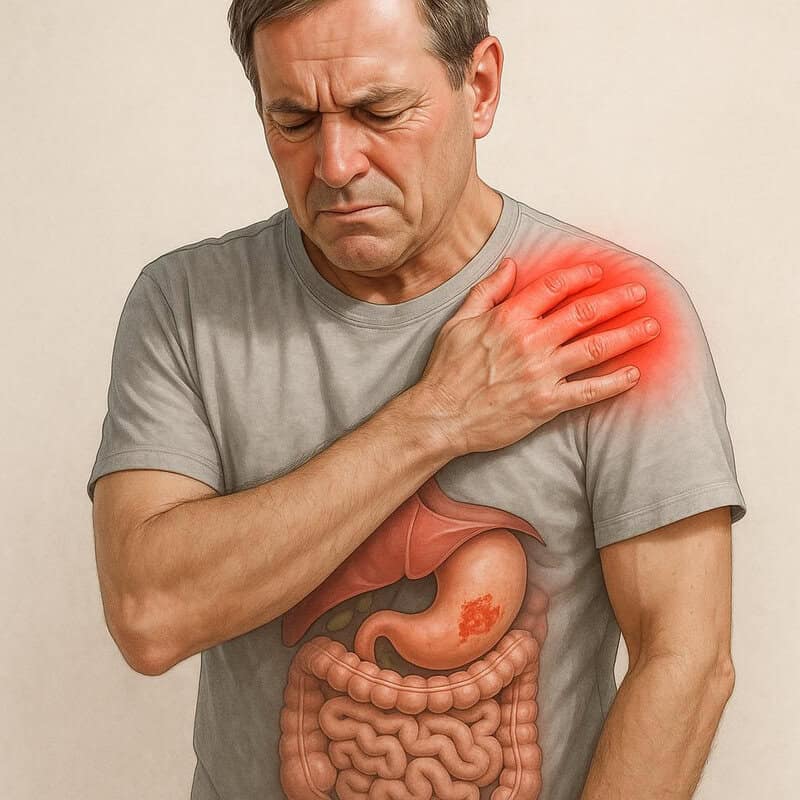
Shoulder pain, particularly when it arises without obvious injury or overuse, can sometimes be a form of referred pain linked to abdominal conditions like stomach cancer. Referred pain occurs when discomfort from one part of the body is perceived in another area due to shared nerve pathways. In the case of stomach cancer, irritation or inflammation of the diaphragm (which shares nerve connections with the shoulder area) can lead to pain felt at the tip of the shoulder, especially the left side. This is different from muscular shoulder pain caused by strain, poor posture, or direct trauma, which is usually localized, aggravated by movement, and relieved with rest or physical therapy.
Unexplained, persistent shoulder pain that does not improve with typical treatments—particularly when associated with abdominal discomfort, bloating, or digestive symptoms—should prompt further medical investigation. It is important not to dismiss ongoing or unusual pain, as early recognition of referred pain can lead to the identification of underlying problems. If you experience prolonged or unexplained shoulder pain, consult your healthcare provider for a thorough evaluation. For more information on referred pain and its relevance to abdominal cancers, visit the Cancer Research UK’s stomach cancer symptoms page. Prompt assessment can help reveal hidden causes and guide appropriate care.
34. Back Pain
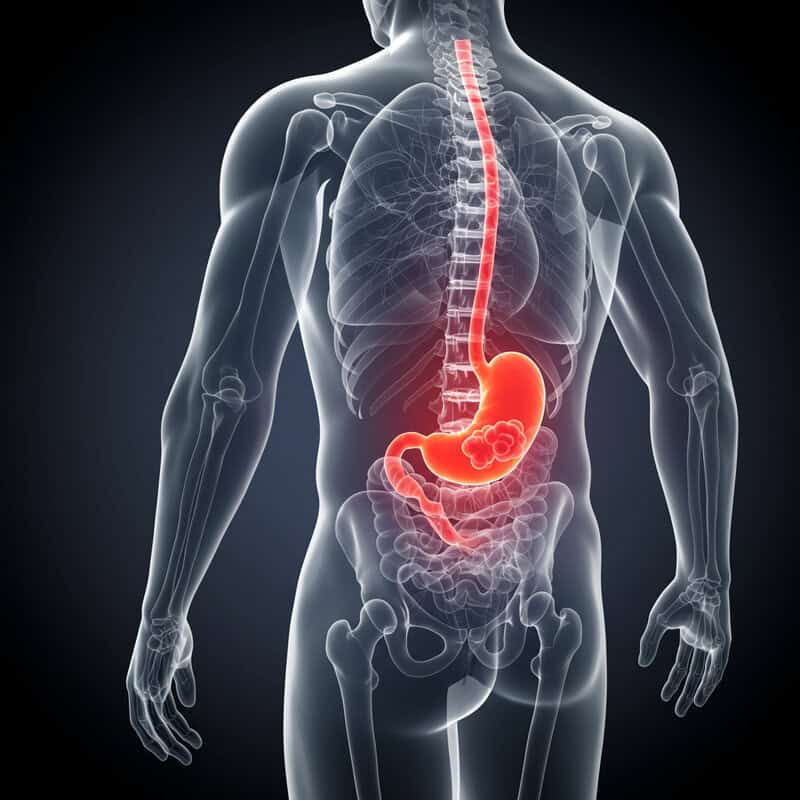
Back pain can occasionally signal more than just musculoskeletal strain; it may be an indication that stomach cancer has spread (metastasized) to nearby tissues or nerves. Tumors located in the upper part of the stomach or those that have invaded the lining of the abdomen (peritoneum) can irritate nerves that supply the back, resulting in persistent, deep-seated pain. Unlike typical back pain caused by poor posture, heavy lifting, or muscle overuse—which is usually localized, responds to rest, and improves with stretching or physical therapy—cancer-related back pain tends to be more constant, less responsive to conventional treatments, and may worsen over time.
When back pain is ongoing, unexplained, or accompanied by other symptoms such as abdominal discomfort, weight loss, or fatigue, it should be taken seriously. It is especially concerning if the pain is deep, not related to movement, or occurs with night sweats and other signs of systemic illness. If you notice persistent or unusual back pain without a clear cause, consult a healthcare professional for evaluation. For more information about back pain and its potential links to stomach cancer, visit the American Cancer Society’s stomach cancer symptoms page. Early diagnosis is crucial for appropriate management and improved outcomes.
35. Swelling Above the Collarbone (Virchow’s Node)

Swelling above the collarbone, specifically on the left side at the site known as Virchow’s node, can be a significant indicator of advanced stomach cancer. This lymph node, located just above the clavicle, acts as a sentinel for lymphatic drainage from the abdomen. When cancer cells from the stomach spread through the lymphatic system, they may become trapped in Virchow’s node, causing it to enlarge. Unlike the temporary, tender swelling of lymph nodes caused by infections—such as a sore throat or a cold—Virchow’s node is typically firm, painless, and persistent, and its swelling does not resolve with time or antibiotic treatment.
The presence of an enlarged Virchow’s node is considered a classic sign of metastatic disease and warrants prompt medical evaluation. It may be accompanied by other symptoms of advanced cancer, such as unexplained weight loss, fatigue, or digestive complaints. If you notice a persistent, hard swelling above your collarbone—especially in the absence of infection or injury—it is important to consult a healthcare provider immediately. For more detailed information about Virchow’s node and its significance in cancer, visit the Cancer Research UK’s stomach cancer symptoms page. Early recognition of this sign can lead to timely diagnosis and care.
36. Persistent Hiccups
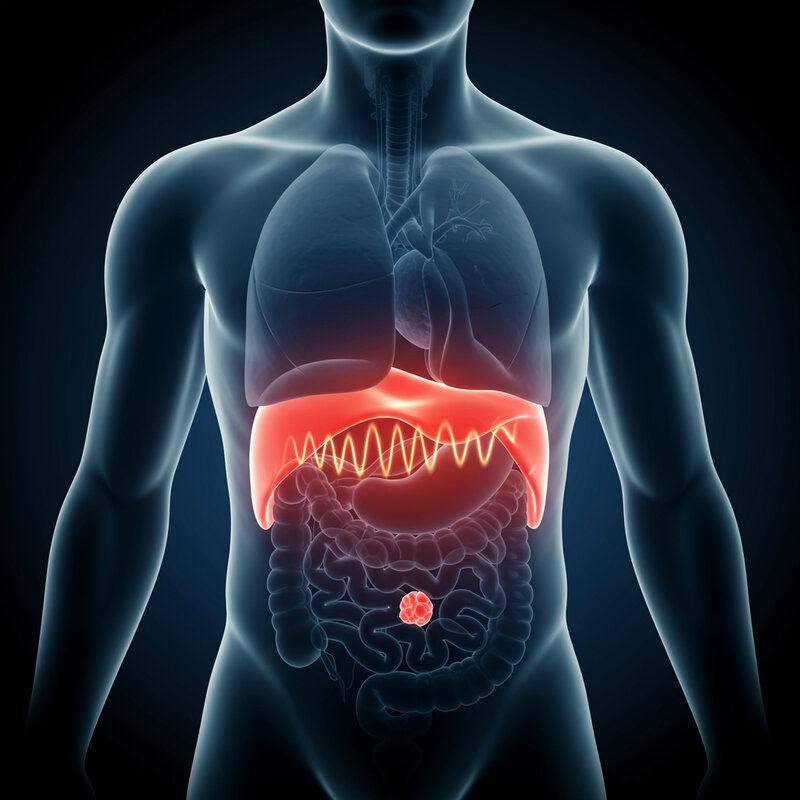
Persistent hiccups, defined as hiccups lasting more than 48 hours, can sometimes be an early warning sign of underlying medical conditions, including stomach cancer. Chronic hiccups may occur when a tumor in the stomach or upper abdomen irritates the diaphragm or the nerves (phrenic or vagus) that control its movement. This irritation can disrupt the normal rhythmic contractions of the diaphragm, resulting in ongoing, involuntary hiccup episodes. In contrast, normal hiccups usually arise after eating too quickly, consuming carbonated beverages, or experiencing sudden excitement; they are brief and typically resolve on their own within minutes.
While most cases of hiccups are harmless and self-limited, persistent or intractable hiccups—especially when accompanied by other symptoms such as difficulty swallowing, unexplained weight loss, or abdominal discomfort—should prompt further medical evaluation. Chronic hiccups can interfere with sleep, nutrition, and overall well-being, and may indicate an underlying disorder requiring attention. If you experience relentless hiccups that last for days or recur frequently without an obvious cause, consult a healthcare provider for assessment. For more information about persistent hiccups and their potential association with cancer, visit the American Cancer Society’s resource on hiccups. Early recognition can help identify and address serious underlying issues.
37. Persistent Mouth Ulcers
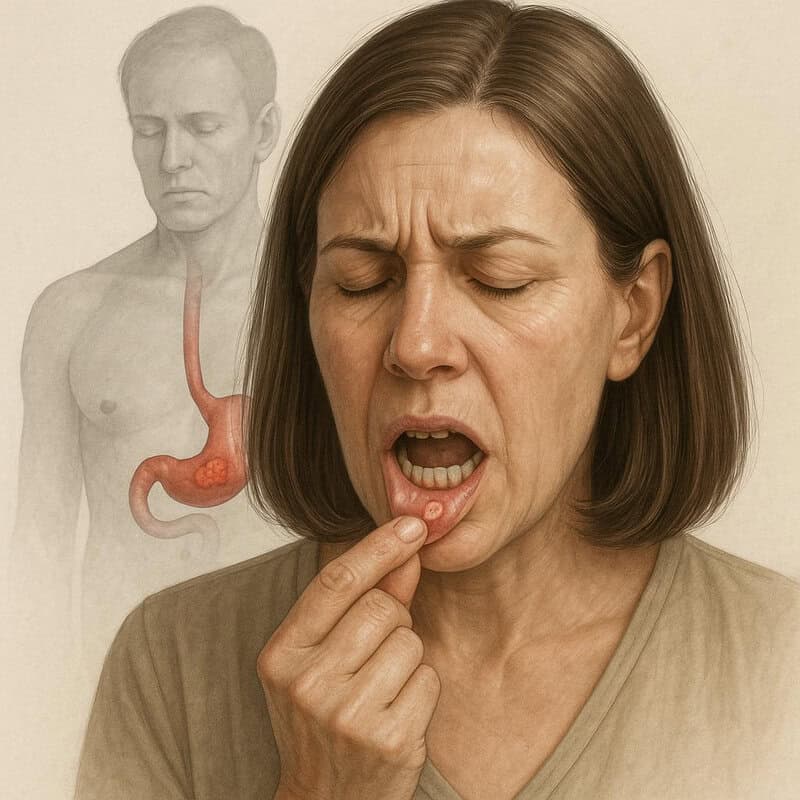
Persistent mouth ulcers, also known as canker sores, can sometimes be a warning sign of underlying systemic issues, including stomach cancer. Cancer can weaken the immune system and lead to nutritional deficiencies, particularly in iron, vitamin B12, and folate—all of which are crucial for maintaining healthy mucosal tissues. When the immune response is compromised or nutrition is inadequate, the mouth becomes more susceptible to chronic ulceration and slower healing. This is different from the typical mouth ulcer caused by accidentally biting the cheek, eating hot foods, or minor irritation, which usually heals within one to two weeks without intervention.
Mouth ulcers that linger for several weeks, recur frequently, or are accompanied by other concerning symptoms—such as unexplained weight loss, persistent fatigue, or changes in appetite—warrant prompt medical evaluation. Chronic mouth sores may interfere with eating, speaking, and overall quality of life, making it important to identify and address any underlying causes. If you experience mouth ulcers that do not heal or keep coming back, consult a healthcare provider for assessment and appropriate care. For more information on oral health issues related to cancer, visit the Cancer.Net page on mouth problems and oral health. Early diagnosis can improve outcomes and prevent complications.
38. Gum Bleeding

Gum bleeding can be a sign of an underlying bleeding disorder, which may develop in people with stomach cancer due to chronic blood loss, low platelet counts, or impaired liver function. These factors can interfere with the blood’s ability to clot effectively, causing the gums to bleed easily, even with gentle brushing or spontaneously. This is different from gum bleeding caused by gingivitis or periodontal disease, which typically results from plaque buildup and poor oral hygiene, and is often accompanied by swollen or tender gums that improve with better dental care.
Unexplained or persistent gum bleeding—especially when it occurs in the absence of visible gum disease or recent dental work—should prompt further evaluation. It is particularly concerning if it is accompanied by other signs of bleeding, such as frequent nosebleeds, bruising, or blood in the stool or urine. Such symptoms may indicate a serious underlying health issue that requires medical attention. If you notice ongoing gum bleeding without an obvious dental cause, consult a healthcare provider to investigate potential systemic problems. For more information about gum bleeding and its connection to cancer and blood disorders, see the American Cancer Society’s resource on bleeding and bruising. Early evaluation can ensure timely diagnosis and treatment.
39. Taste Changes

Taste changes, known medically as dysgeusia, can be an early or ongoing symptom in individuals with stomach cancer. The condition may arise due to cancer’s direct effects on metabolic function, inflammatory responses, or nutritional deficiencies, impacting the taste receptors on the tongue and throughout the mouth. Additionally, ongoing digestive disturbances or the body’s altered chemistry during illness can further distort or dull sensation. This is distinctly different from the temporary loss or alteration of taste experienced during a cold, flu, or sinus infection, which is typically short-lived and resolves as the underlying infection clears.
Persistent taste changes can range from a metallic or bitter flavor to an overall loss of taste (ageusia), and can significantly affect appetite and food enjoyment. When taste alterations last for several weeks, occur without a clear cause, or are accompanied by other concerning symptoms such as weight loss, mouth sores, or chronic digestive issues, it is important to seek medical evaluation. Monitoring changes in taste and discussing them with a healthcare provider can help identify underlying conditions early. For more information about taste changes and their links to cancer, visit the Cancer.Net resource on changes in taste. Early recognition supports better nutrition and overall health.
40. Increased Thirst

Increased thirst, also known as polydipsia, can be a subtle sign of underlying health problems, including stomach cancer. Cancer can cause metabolic disturbances and shifts in body fluids, particularly if it leads to chronic blood loss, dehydration, or changes in kidney function. The body may attempt to compensate for these imbalances by triggering a stronger urge to drink fluids. This is different from the normal, temporary thirst experienced after exercise, exposure to hot weather, or consumption of salty foods, which typically resolves after adequate hydration.
Persistent or unexplained increased thirst—especially when accompanied by symptoms such as fatigue, dark urine, frequent urination, or unexplained weight loss—warrants further medical evaluation. Cancer-induced changes in metabolism, ongoing gastrointestinal losses, or complications like hypercalcemia (elevated calcium levels in the blood) can all contribute to ongoing thirst. If you notice a significant increase in your fluid intake that cannot be explained by activity level or weather, it is important to consult a healthcare provider. For more information about increased thirst and its potential links to cancer and other conditions, visit the American Cancer Society’s resource on dehydration. Early investigation can help identify the cause and support optimal hydration and health.
41. Numbness or Tingling in Hands/Feet
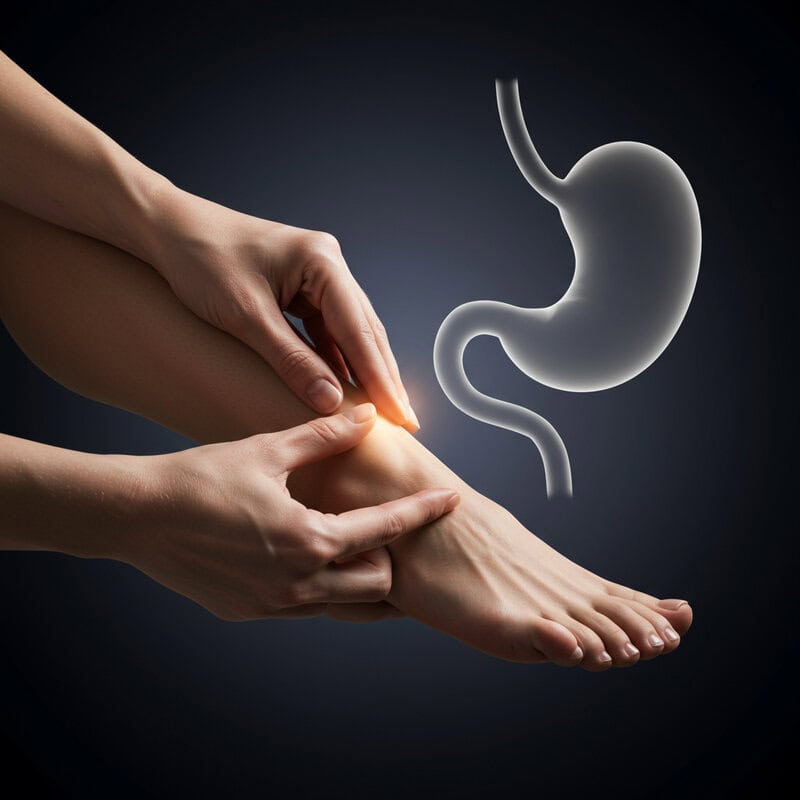
Numbness or tingling in the hands and feet—known medically as peripheral neuropathy—can occur in individuals with stomach cancer, often as a result of vitamin deficiencies. Stomach tumors and related digestive problems can impair the absorption of essential nutrients such as vitamin B12, folate, and other B vitamins. These nutrients are crucial for healthy nerve function, and their deficiency can lead to nerve irritation, resulting in sensations of numbness, tingling, or even burning pain. This is different from temporary numbness caused by sitting in one position for too long or brief nerve compression, which quickly resolves once normal movement resumes.
Persistent or progressive numbness and tingling—especially when not explained by posture, injury, or other obvious causes—should not be ignored. These symptoms may also be accompanied by weakness, difficulty walking, or loss of coordination. If you experience ongoing numbness or tingling, particularly alongside other warning signs such as fatigue, weight loss, or digestive issues, seek a healthcare provider’s evaluation. Early intervention can help identify the underlying cause and prevent further nerve damage. For more information about nerve problems, vitamin deficiencies, and cancer, visit the Cancer.Net resource on nervous system side effects. Recognizing and managing these symptoms supports better long-term outcomes.
42. Trouble Concentrating

Trouble concentrating, often described as “brain fog,” can be a subtle but significant symptom of stomach cancer. Anemia, caused by chronic blood loss from a tumor, reduces oxygen delivery to the brain, which can impair cognitive function. Additionally, malnutrition resulting from poor appetite, nausea, or digestive difficulties may deprive the brain of essential nutrients needed for optimal performance. This type of cognitive impairment differs from normal distraction due to stress, fatigue, or multitasking, which typically resolves with rest or a change in environment.
Ongoing difficulty focusing, forgetfulness, or mental fatigue that interferes with daily tasks—even after a good night’s sleep—should not be ignored. Persistent cognitive trouble, especially when accompanied by other symptoms such as fatigue, unexplained weight loss, or digestive complaints, warrants medical attention. Early recognition of these symptoms can lead to prompt diagnosis and support, including nutritional intervention and treatment of underlying anemia or illness. If you or a loved one experiences ongoing trouble concentrating, consult a healthcare provider for a thorough assessment. For more information on cognitive side effects and cancer, visit Cancer.Net’s page on cognitive problems and cancer. Early attention can improve quality of life and outcomes.
43. Swelling in Legs (Edema)

Swelling in the legs, or edema, can be a sign of underlying stomach cancer, particularly when the condition progresses and disrupts normal fluid balance in the body. Tumors may cause protein loss through the digestive tract or interfere with the liver’s ability to produce albumin, a vital protein that helps maintain fluid within blood vessels. As protein levels drop, fluid leaks from the vessels into surrounding tissues, resulting in swelling—most commonly in the legs, ankles, and feet. This type of swelling is different from that caused by injury, such as a twisted ankle, where the swelling is usually localized, linked to trauma, and resolves as the injury heals.
Edema associated with cancer tends to be persistent, affects both legs, and may worsen as the day progresses or after prolonged standing. It can also be accompanied by other symptoms such as fatigue, abdominal swelling, or shortness of breath. If you notice ongoing or worsening swelling in your legs—especially without a clear cause or when associated with other warning signs—it is important to seek medical evaluation. For more information about edema and its relationship to cancer, visit the American Cancer Society’s resource on edema and lymphedema. Early identification and management are essential for comfort and effective care.
44. Persistent Itching

Persistent itching, or pruritus, can sometimes be an indicator of underlying systemic issues, including stomach cancer that has affected the liver or bile ducts. When a tumor spreads to the liver or obstructs bile flow, bile salts and other waste products can accumulate in the bloodstream. These substances irritate nerve endings in the skin, causing widespread or localized itching that does not resolve with moisturizers or standard anti-itch remedies. This is different from common itches caused by dry skin, insect bites, or allergies, which are often mild, short-lived, and improve with topical treatments or removal of the irritant.
Ongoing, unexplained itching—especially when accompanied by jaundice (yellowing of the skin or eyes), dark urine, or pale stools—should prompt medical evaluation. Itchy skin that lasts more than a few weeks, affects large areas of the body, or interferes with sleep and daily activities warrants special attention, as it may point to liver dysfunction or other serious conditions. If you experience persistent pruritus without an identifiable cause, consult your healthcare provider for investigation. For more information about itching and its link to cancer and liver involvement, visit the American Cancer Society’s resource on skin problems and cancer. Early detection can guide appropriate treatment and relief.
45. Unusual Bowel Movements

Unusual changes in bowel movements—such as the development of pencil-thin stools, persistent constipation, or diarrhea—can sometimes signal a problem in the digestive tract, including stomach cancer. Tumors that grow near the end of the stomach or the beginning of the small intestine may partially obstruct the passage of stool, resulting in narrower or ribbon-like bowel movements. Unlike temporary changes caused by dietary variations (such as increased fiber intake or new foods) or mild stomach upset, cancer-related changes tend to be persistent, progressive, and unresponsive to typical dietary adjustments or over-the-counter remedies.
Other concerning signs include the presence of blood in the stool, ongoing difficulty passing stool, or a sudden shift in bowel habits that lasts more than a few weeks. These symptoms may be accompanied by abdominal discomfort, bloating, or unexplained weight loss. If you notice persistent or unusual changes in your bowel movements, it is important to consult a healthcare provider for further evaluation. Early assessment can help identify the cause and facilitate timely intervention. For more information about bowel changes and cancer, visit the American Cancer Society’s guide to stomach cancer symptoms. Recognizing these symptoms early can make a significant difference in outcomes.
46. Pain After Eating

Pain after eating can be a concerning symptom, especially when it is recurrent and does not have an obvious, benign cause. In the context of stomach cancer, tumor growth within the stomach can interfere with normal digestion, leading to discomfort or pain shortly after meals. Tumors may cause inflammation, partial blockage, or increased pressure inside the stomach, making it difficult for food to pass smoothly. This differs from the temporary cramps or mild pain that might occur after overeating or consuming rich, spicy foods—sensations that typically resolve within a few hours and are directly related to eating habits.
Cancer-related pain after eating is often persistent, may worsen over time, and is commonly accompanied by other symptoms such as early satiety, nausea, or unintended weight loss. It can interfere with appetite and nutrition, further impacting overall health. If you notice a recurring pattern of pain after meals that lasts for several weeks or gets progressively worse, it is important to seek a medical evaluation. For additional information on pain after eating and its connection to stomach cancer, visit the American Cancer Society’s guide to stomach cancer symptoms. Early recognition and diagnosis are essential for effective treatment and improved prognosis.
47. Unexplained Irritability

Unexplained irritability can be a subtle but important warning sign of underlying chronic illness, including stomach cancer. The constant physical stress of dealing with symptoms such as pain, fatigue, nutritional deficiencies, and poor sleep can have significant effects on mood and emotional regulation. Chronic illness often leads to hormonal and biochemical changes in the body and brain, which may further contribute to increased irritability or emotional volatility. This is distinctly different from normal mood swings, which are usually triggered by identifiable stressors, changes in environment, or temporary circumstances, and typically resolve with time or rest.
When irritability becomes persistent, difficult to control, or is accompanied by other warning signs such as fatigue, trouble concentrating, or unexplained weight loss, it may be a red flag for an underlying medical condition. Chronic irritability can also impact relationships, work, and overall quality of life. If you or someone you know is experiencing ongoing mood changes without a clear cause, it is important to seek medical evaluation. For more information about the emotional effects of cancer and chronic illness, visit the American Cancer Society’s resource on mood changes and cancer. Early recognition and support can help address both emotional and physical health needs.
48. Recurrent Gastritis

Recurrent gastritis—persistent or frequently returning inflammation of the stomach lining—can sometimes be an early indicator of more serious underlying problems, including stomach cancer. Chronic gastritis may be caused by repeated irritation from a tumor, which can damage the protective mucosal barrier and provoke ongoing inflammation. Unlike a single episode of gastritis, which may result from a temporary infection, excessive alcohol use, or nonsteroidal anti-inflammatory drug (NSAID) consumption and typically resolves with treatment or lifestyle changes, recurrent gastritis tends to return despite standard therapies.
Symptoms may include upper abdominal pain, bloating, nausea, or indigestion that flares up repeatedly or never fully goes away. If you find yourself experiencing frequent bouts of gastritis or require ongoing medication to manage stomach discomfort, it is important to speak with your healthcare provider for further evaluation. Persistent inflammation can cause lasting damage and may increase the risk of developing precancerous changes or cancer itself. For more information about chronic gastritis and its potential connection to stomach cancer, visit the Cancer Research UK’s stomach cancer symptoms page. Ongoing monitoring and early intervention are key to preventing complications and ensuring optimal digestive health.
49. Difficulty Digesting Fatty Foods
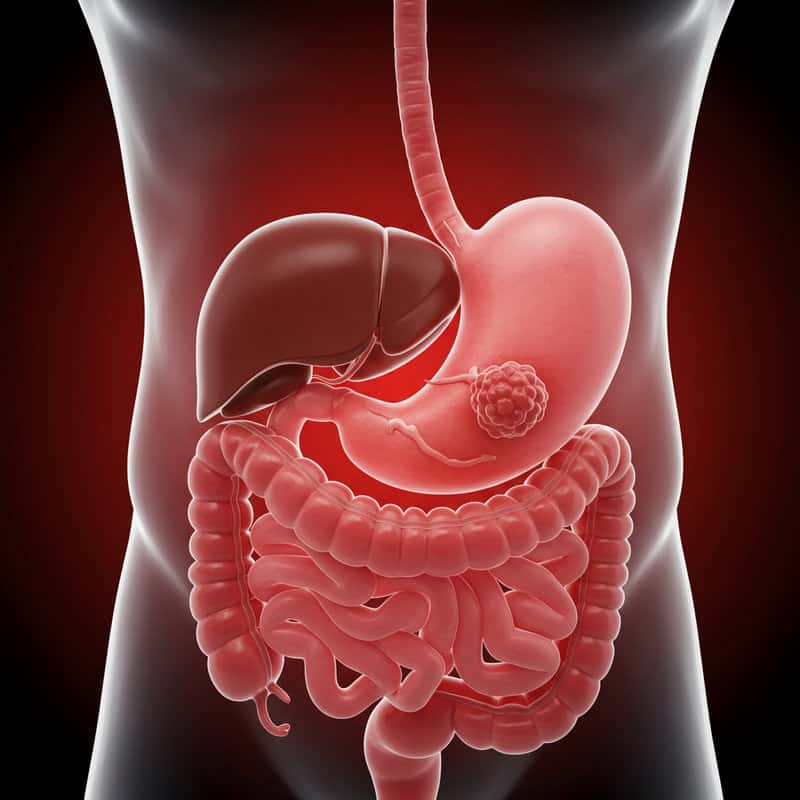
Difficulty digesting fatty foods can be a sign of impaired digestive function, which sometimes occurs in people with stomach cancer. Tumors in the stomach can interfere with the release of enzymes and stomach acids needed to break down fats, or they may indirectly affect the pancreas and bile ducts, further hampering fat digestion. This disruption can lead to symptoms such as bloating, cramping, greasy or pale stools, and a sensation of fullness or discomfort after eating foods rich in fat. Unlike the occasional mild indigestion that may follow a particularly heavy or greasy meal, cancer-related difficulty with fatty foods tends to be persistent and does not improve with minor dietary adjustments.
If you consistently notice that fatty foods cause digestive distress, or if these symptoms are accompanied by unexplained weight loss, changes in stool appearance, or ongoing discomfort, prompt medical evaluation is recommended. These persistent changes may suggest an underlying issue with the stomach, pancreas, or liver. For more information about digestive symptoms and their link to stomach cancer, visit the American Cancer Society’s guide to stomach cancer symptoms. Monitoring persistent digestive changes is important for early detection and effective management.
50. General Feeling of Being Unwell

A general feeling of being unwell, often described as malaise, is a common but nonspecific symptom that can be associated with the early stages of stomach cancer. This vague sense of discomfort, fatigue, or lack of vitality may persist even when no obvious cause is present. Unlike the temporary tiredness or lethargy that follows a period of overwork, stress, or inadequate sleep—which typically resolves with rest or a change in routine—cancer-related malaise tends to be ongoing and unrelieved by normal restorative measures.
People experiencing this general sense of unwellness may also notice other subtle symptoms such as mild digestive changes, intermittent aches, or a gradual decline in daily energy and motivation. Persistent malaise should not be ignored, especially if it lasts for several weeks or is accompanied by additional warning signs like unexplained weight loss, appetite changes, or recurrent digestive issues. If you or someone you know is struggling with a chronic, unexplained sense of being unwell, it is important to seek a thorough medical evaluation. For more information about vague symptoms and their importance in cancer detection, visit the Cancer Research UK’s stomach cancer symptoms page. Early investigation can aid in prompt diagnosis and better outcomes.
Conclusion
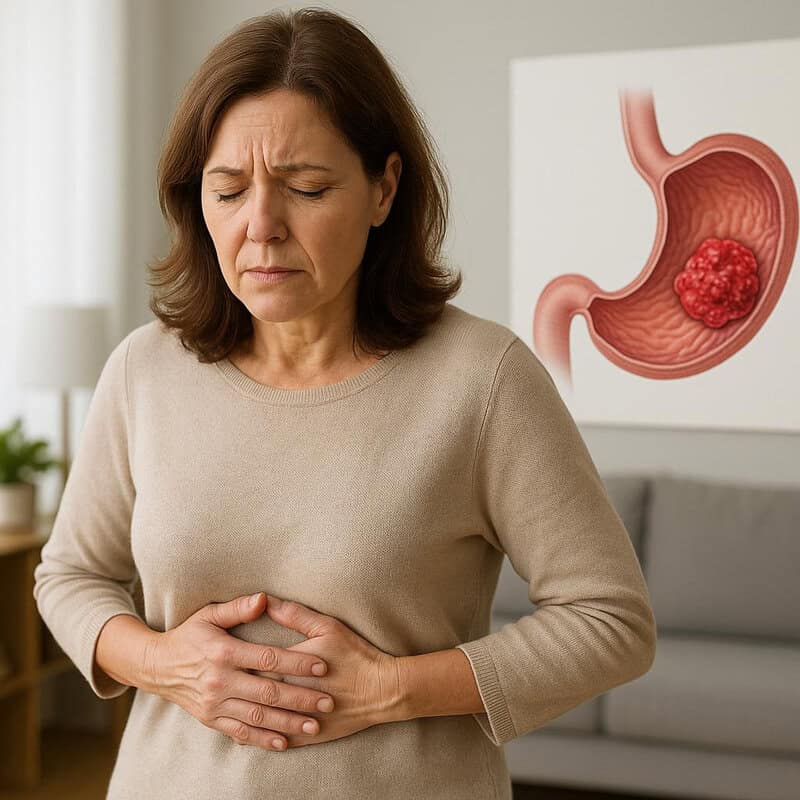
Recognizing the early warning signs of stomach cancer is essential for timely diagnosis and effective treatment. Many of these symptoms are subtle and easily mistaken for less serious conditions, so vigilance and awareness are crucial. If you or a loved one experience persistent or unexplained changes in digestive health, energy levels, or overall well-being, do not ignore these signals. Consult your healthcare provider promptly and consider regular screenings if you are at higher risk. Early intervention can significantly improve outcomes and quality of life. For more information on risk factors, prevention, and screening, visit the American Cancer Society’s resources on stomach cancer.
Disclaimer
The information provided in this article is for general informational purposes only. While we strive to keep the information up-to-date and correct, we make no representations or warranties of any kind, express or implied, about the completeness, accuracy, reliability, suitability, or availability with respect to the article or the information, products, services, or related graphics contained in the article for any purpose. Any reliance you place on such information is therefore strictly at your own risk.
In no event will we be liable for any loss or damage including without limitation, indirect or consequential loss or damage, or any loss or damage whatsoever arising from loss of data or profits arising out of, or in connection with, the use of this article.
Through this article you are able to link to other websites which are not under our control. We have no control over the nature, content, and availability of those sites. The inclusion of any links does not necessarily imply a recommendation or endorse the views expressed within them.
Every effort is made to keep the article up and running smoothly. However, we take no responsibility for, and will not be liable for, the article being temporarily unavailable due to technical issues beyond our control.





